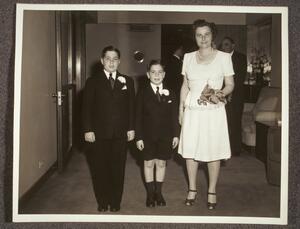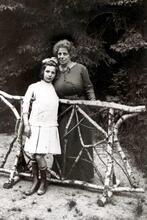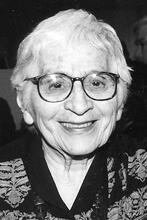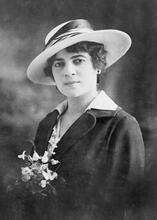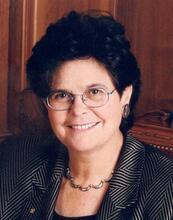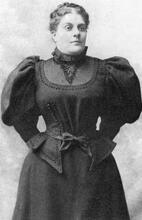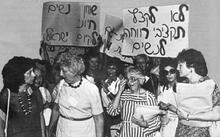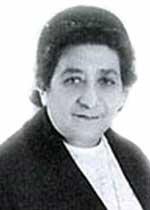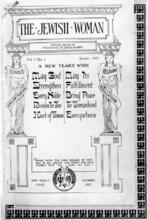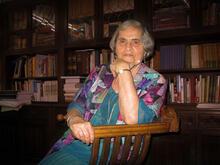Helen Lehman Buttenwieser
As a lawyer, Helen Lehman Buttenwieser fought to protect children in the foster care system. Buttenwieser was a board member of the Madison House Settlement from 1929 to 1945 and served on the Commission for Social Welfare from 1929 to 1932, among others. She also volunteered as a Jewish Big Sister and social worker, often testifying in court cases on behalf of children, experiences that led her to pursue a law degree. She graduated from New York University Law School in 1936 and later became the Legal Aid’s first woman chair, before creating her own law firm. She was also a trustee of the ACLU, a board member of the NAACP’s Legal Defense Fund, and the first woman chair of a standing committee of the Bar Association of the City of New York.
Family, Education, and Early Work
A distinguished attorney who specialized in adoption and foster care issues and represented child welfare agencies and the children under their care, Helen Lehman Buttenwieser was born on October 8, 1905, and grew up in a Jewish family prominent in New York banking and philanthropic circles. Her mother was Adele Lewisohn, a suffragist and daughter of Adolph Lewisohn, who had made a fortune in copper. Her father was banker Arthur Lehman, whose brothers were Herbert H. Lehman, governor of New York, and Irving Lehman, a judge on the Court of Appeals. Her husband, Benjamin J. Buttenwieser, was a member of the banking firm of Kuhn, Loeb & Co., and a United States assistant high commissioner in Germany after World War II. They had four children.
A graduate of Horace Mann School for Girls and Connecticut College (1926), she studied for a year at the New York School of Social Work and then entered child guidance work as a volunteer. While raising her family she served as board member (1929–1945) and then president of Madison House Settlement on New York’s Lower East Side, in posts to which Mayor James J. Walker appointed her on the Commission on Social Welfare (1929–1932), and as trustee (1930) of the Widowed Mothers Pension Fund and of the Citizens Committee for Children. As a Jewish Big Sister, she testified in many court cases concerning children and women’s rights. This experience led her to think about becoming a judge in Children’s or Domestic Relations Court (now Family Court). While this plan remained unfulfilled, she took the first step, enrolling in New York University Law School in 1933.
Career in Law and Children’s Services
Buttenwieser graduated in 1936, one of only twelve women in her class. A distinguished legal career, in which she accumulated many firsts for women, followed. She was the first woman hired at Cravath, Swaine & Moore, although the firm insisted that she remain in an office by herself for her first year and expected her to leave when she became pregnant. As a staff member of the Legal Aid Society, she served two months in the society’s Criminal Court Office in Manhattan, work then deemed “inappropriate for women.” Later, as a member of her own firm of Lindau, Robbins, Buttenwieser & Backer, she was active in the Association of the Bar of the City of New York, a member of the Democratic State Committee (15th Assembly District), the first woman chair of a standing committee of the Bar Association of the City of New York, and the first woman to serve on the board of Title Guarantee & Trust Co. (appointed in 1949).
In 1946, Buttenwieser pioneered in the movement to correct abuses in adoptions. Reports of a black market in babies and of babies remaining in foster care so long that they became too old for placement led three groups—the Welfare Council of New York City, the United Hospital Fund, and the New York Academy of Medicine—to form a New York City Committee on Adoptions and appoint Buttenwieser its chair. Its report, issued in 1948, recommended major reforms in the adoption and foster parent system, including prompt notification of appropriate public agencies of couples’ intentions to adopt, authorized investigations of homes of presumptive adoptive parents, and establishment of procedures for terminating unsuccessful adoptions and for preventing placements of children for profit.
An avid civil libertarian, Buttenwieser was the first woman chair of the Legal Aid Society board and a trustee of the New York Civil Liberties Union. When Alger Hiss, convicted of perjury in a spy case in 1949, sought to overturn his conviction in 1950, Buttenwieser became his counsel; later, she helped bail out an accused Soviet spy, Dr. Robert Soblen, who later fled to Israel. She was a board member of the Legal Defense Fund of the National Association for the Advancement of Colored People. During the 1960s, her prior civil liberties work was used against Mayor Robert Wagner, whom she was supporting. In the 1970s, she presented amicus curiae briefs to the United States Supreme Court challenging the government’s right to terminate Aid to Families with Dependent Children on the basis of a mother’s sexual behavior. In an interview given shortly before her death, she characterized her career as “just a way of life.” “I never thought of a career,” she said. “I wanted to go to law school, so I went to law school. I wanted to practice law, so I practiced law. I didn’t ever stop to say did I want to do something—I just did it.” Throughout her life in the law she served as an important role model for many women attorneys.
Buttenwieser, Helen Lehman. Papers. Schlesinger Library, Radcliffe College.
NYTimes, passim, 1932–1989.

